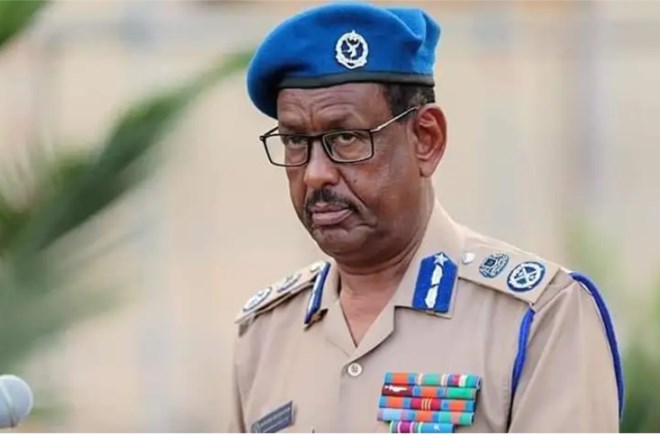FDD's Long War Journal
Monday April 25, 2022

On the evening of April 22, Shabaab, al Qaeda’s branch in
East Africa, struck a popular restaurant in Lido Beach in Mogadishu in an
attempt to assassinate the chief of the Somali Police Force, Abdi Hassan
Mohamed Hijaar. The police commander was accompanied by 11 members of the
Somali Parliament at the time of the attack.
Local reporters describe the attack as “complex” as the
terrorist organization conducted a suicide bombing of the crowded restaurant,
then followed the explosion with an assault by gunmen. Hijaar, along with
several other Somali government officials, were breaking their Ramadan fast at
the restaurant at the time of the attack.
Shabaab frequently employs the tactic of suicide assaults,
especially upon popular hotels in Mogadishu, using the shock and chaos created
by the suicide bombing to enable its gunmen to then enter the fray.
According to local sources, Hijaar and other Somali
government officials were unharmed in the assault, indicating that Shabaab
failed to accomplish its objective. However, at least 6 people, all civilians,
were killed in the attack. Local officials stated at least another 7 people
were also injured.
Shabaab was quick to claim the suicide bombing via its
Shahada News Agency and local radio stations. According to the jihadist group,
it was specifically targeting “the grouping of apostate government officials”
at the restaurant.
According to data compiled by FDD’s Long War Journal,
Friday’s blast marks the group’s 12th successful or attempted suicide bombing
so far this year. The vast majority of these have occurred inside Mogodishu.
Shabaab further stated it “killed and wounded 44 people,”
including an alleged government official, though the group routinely inflates
the casualty numbers of its attacks. Local media has also denied that any
government personnel were injured.
Shabaab often uses suicide bombings in its political
assassinations. For instance, the group killed Somali lawmaker Amina Mohamed
Abdi in a suicide bombing in central Somalia last month. Last year, it also
attempted to assassinate the governor of Somalia’s Bay region in a similar
blast. While in 2020, two regional governors, of Puntland’s Nugaal and Mudug
regions, were killed by Shabaab’s suicide bombers.
Targeting Somalia’s
Election Process
Friday’s suicide assault once again demonstrates that
Mogadishu is not safe from insurgent attacks. Shabaab continues to attempt to
undermine the federal government by illustrating its inability to protect its
population and secure its territory. In this regard, Friday’s suicide bombing
was just the latest in a recent series of attacks.
On Monday, Shabaab claimed credit for a mortar attack on the
Somali parliament building in Mogadishu. Though no one was killed in the
attack, at least six were injured. The attack occurred while the newly elected
parliamentarians were approving procedures for electing the speakers.
The mortar blasts, like the consecutive strikes at the end
of March, represent yet another Shabaab attempt to undermine the Somali
election process. Friday’s suicide assault can also be seen within the context
of Shabaab’s attempts at disrupting the process.
As the election process continues, with various delays,
Shabaab will continue to muster its forces to disrupt the elections across the
country. Government officials, including local politicians, are likely to
continue to be targets of Shabaab’s violence.
Despite some setbacks in recent years, Shabaab continues to
be one of al Qaeda’s most effective branches. It maintains significant control
over much of southern Somalia and retains the ability to strike in Mogadishu,
Kenya, where it also controls territory, and against heavily fortified bases in
both Somalia and Kenya.
Though its fortunes have ebbed and flowed over the past
decade, it has weathered numerous offensives from an array of local, regional,
and international actors, including the United States.